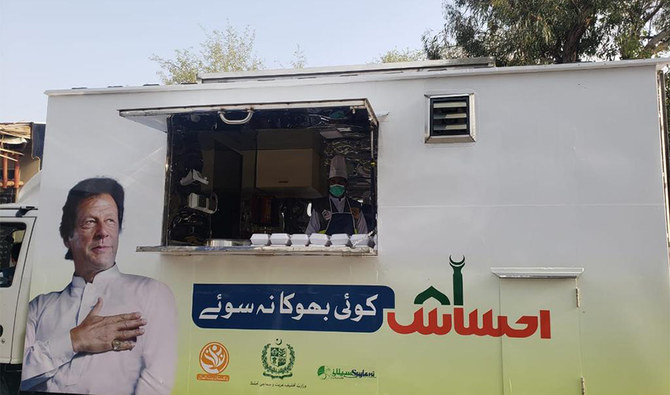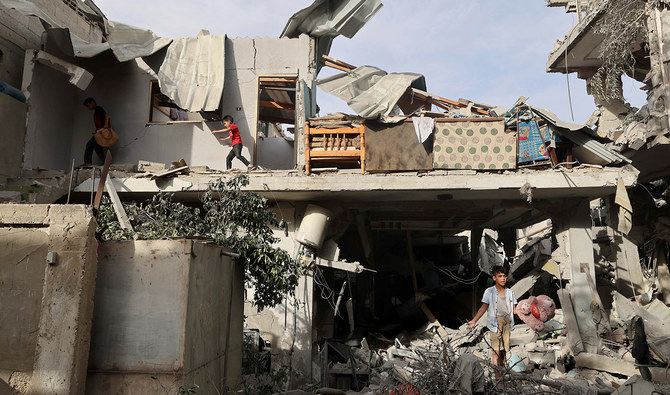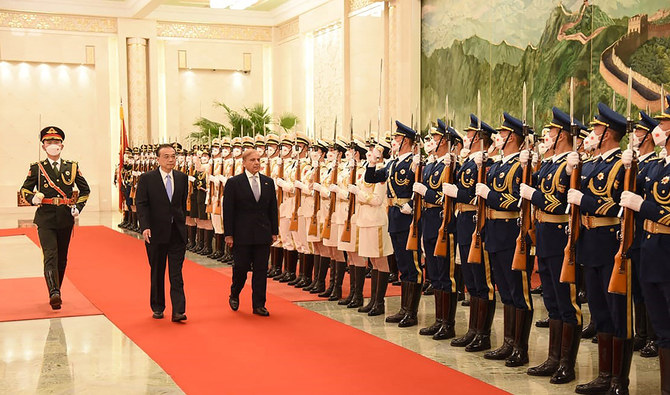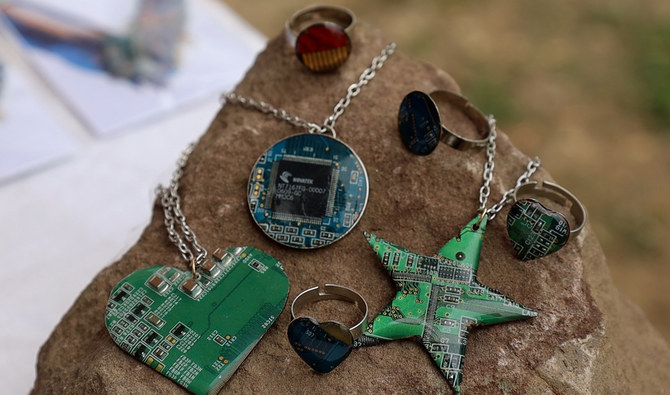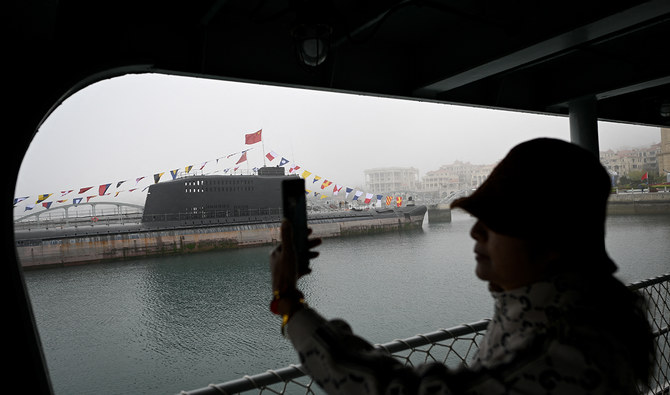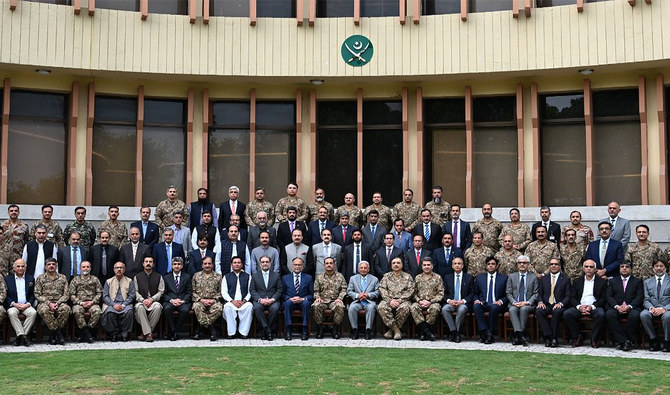KARACHI: Pakistani Prime minister Imran Khan this week launched his “Koi Bhooka Na Soye” (KBNS) project, a meals-on-wheels program that envisions that no one should sleep hungry in the nation of 220 million, as critics called for a multi pronged approach to poverty alleviation rather than “cosmetic measures” like food trucks.
On January 1, Khan said his new year resolution was to implement universal health care in Pakistan and launch a “No one should sleep hungry” project. In October, Pakistan was labelled one of the top ranked countries in Asia for its social protection intervention amid the COVID-19 pandemic with the launch of the Ehsaas, or Empathy, program — an ambitious poverty alleviation plan to help the country’s poorest gain better access to health care, education, and employment.
“My New Year resolution for 2021 is to complete two projects. One, universal health coverage to all our citizens,” Khan had said in a tweet.
2020 was a tough year for us & for people across the world bec of Covid19. But by the grace of God we fared far better than most. We not only managed to protect our ppl but also saved them from hunger. We are moving forward to making Pakistan a Welfare State.
— Imran Khan (@ImranKhanPTI) January 1, 2021
“Two, we will start our most ambitious nationwide project “Koi Bhuka Na Soyay“(No one should sleep hungry in Pak) under Ehsaas prog. By the end of the yr these 2 projects will move us closer to our goal of making Pak a welfare state,” the PM added.
Our Ehsaas programme provides social security & our health card scheme provides the poor with proper medical access. My New Year resolution for 2021 is to complete two projects. One, universal health coverage to all our citizens. It has begun in KP & will soon in Punjab & GB.
— Imran Khan (@ImranKhanPTI) January 1, 2021
A KBNS pilot project was launched in Islamabad and Rawalpindi on Wednesday to deliver free lunch and dinner to the poor on food trucks that aim to reach people who couldn’t access government langar khanas, or free food centers.
“This is very important for Pakistan,” Khan said while addressing the launching ceremony. “This is the start of the welfare state that we are going to establish.”
“There are many areas in Pakistan where people sleep hungry as they can hardly afford food,” Khan said, acknowledging high inflationary pressure in the country.
The KBNS project has been launched as a public private partnership, with the Saylani Welfare Trust, which has a network of 125 branches in major Pakistan cities, responsible for providing the food. The charity says it already feeds almost 150,000 people daily.
The overall fund allocation and other details of the KBNS project remain unclear as officials declined to share information when approached by Arab News.
An official at the office of Dr. Sania Nisthar, Special Assistant to the Prime Minister on Poverty Alleviation and Social Protection, said he was not authorized to share any details of the program with the media.
But critics of the government say it needs to take concrete steps to increase employment, rather than implement “cosmetic measures” and give handouts.
“This is a very wrong approach where you think langar khanas are a substitute for [setting up] industries,” former finance minister and opposition politician Miftah Ismail told Arab News. “How many people will you feed out of the population of 220 million?”
“No country in the world has eliminated hunger through such initiatives,” Ismail added. “China eliminated poverty through industrialization.”
“There are around 80 million people in Pakistan living in poverty,” senior economist Dr. Abdul Hafeez Pasha said. ““And the number of unemployed people at present is 15 million.”
Official figures show that 55.74 million people, or 35% of the population, was economically active before COVID-19 struck, but the economically active population declined to 22%, or 35.04 million people, after the pandemic, according to a survey conducted by Pakistan Bureau of Statistics.
“Pakistan needs to make sincere efforts to get rid of prevailing poverty through prudent economic policies instead of these cosmetic measures,” economist Dr. Shahid Hassan Sidiqqui told Arab News. “Pakistan has wasted billions of rupees through such initiatives but poverty, instead of declining, is surging.”
However, Dr. Umair Javed, a professor at the Lahore University of Management Sciences, said such initiatives did have impact in dealing with the urban food crisis but the government also needed to adopt a multi pronged strategy to deal with hunger.
“Due to the economic fallout of COVID-19 people have reduced their food intake and to mitigate the impact the government should take this [KBNS] seriously and expand to other cities and towns in partnership with NGOs,” Javed said. “The government is unable to control food inflation ... it should take measures to control food inflation and if change of import tariff, input pricing and support prices is needed, they should go for it.”



